If you’re hoping for a little extra space to spread out on your next flight, we have some bad news: In 2024, global air passenger demand notched a new record — flights worldwide were 83.5% full on average, according to the IATA. But even if the chances of having an open seat next to you are slim, it does happen every once in a while. And when fortune strikes, you may be wondering: Who gets to take advantage of that precious bit of extra personal space? It turns out, there are a few unwritten rules when it comes to an open middle seat on a plane — here’s what not to do if the situation arises.
Don’t Claim the Space Before Boarding Ends
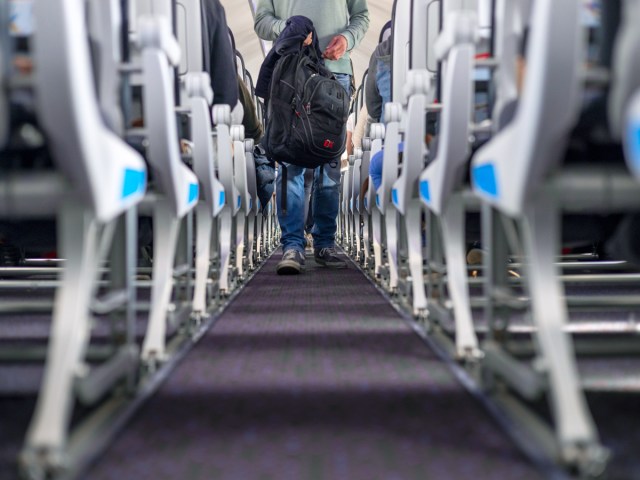
This may be a familiar scenario: You board your flight, find your seat, and notice the middle seat next to you is unoccupied. So, of course, you keep a close eye on the line of passengers making their way down the aisle, holding out hope that the middle seat stays open.
The key is to wait until the door actually closes before assuming the seat will remain empty. While boarding may seem like it’s finished at times, there may be people waiting on the standby list to claim that empty seat, or there may be passengers sprinting from a late connection to board at the last minute. Always hold off for the flight attendants’ announcement that the boarding door has closed before you take advantage of the extra room.
Don’t Put Your Personal Item Underneath It
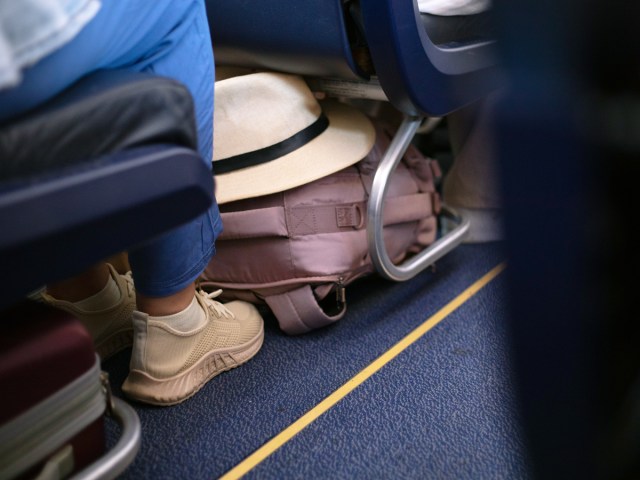
While larger items can be stowed in the overhead bins, smaller personal items such as backpacks, purses, and jackets belong underneath the seat in front of you. If the middle seat stays open, you may be tempted to place those items underneath the seat in front of it so you can enjoy the extra legroom for yourself.
However, it’s considered an unwritten rule of air travel that an empty middle seat is a shared space — it wouldn’t be considerate of the other passenger in your row if you immediately claimed it as your own (at least not without asking first). If the other person doesn’t have a personal item, though, consider it a green light to use that under-seat storage space.
Don’t Spread Out Without Asking First
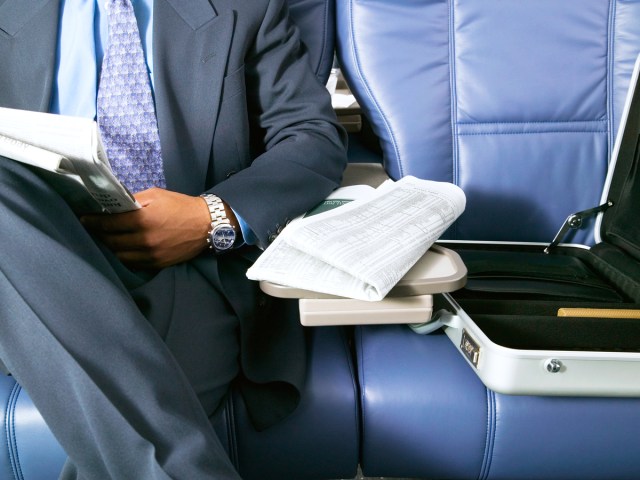
But what about the seat itself? We’re all familiar with how tight economy seats are these days, so the extra real estate provided by an empty middle seat surely comes in handy for storing items like coats or electronic devices, or just to spread your legs a little more.
As with any shared space, communication is key. Etiquette expert Patricia Rossi told Fodor’s that your best bet is to have a conversation with your neighbor: “I would say, ‘Lucky us, we have this beautiful square of skyspace to share. Would you mind if I put my iPad, ear pod holder, book, travel snacks, etc., here?’”
If you plan to place your items (or feet) in or around the middle seat, it’s a good idea to give the person sitting in the same row the opportunity to use that space, too. Say you want to use your own tray table to work on a laptop computer and use the empty seat’s tray table for your drink and snacks — make sure you’re only placing them on your side to free up space for your neighbor.
Also be aware that, in some cases, the person sitting in your row might have actually purchased that seat to remain open intentionally, so the space is technically theirs. Airlines such as United allow passengers to purchase an extra seat for added comfort.
Don’t Get Too Comfortable
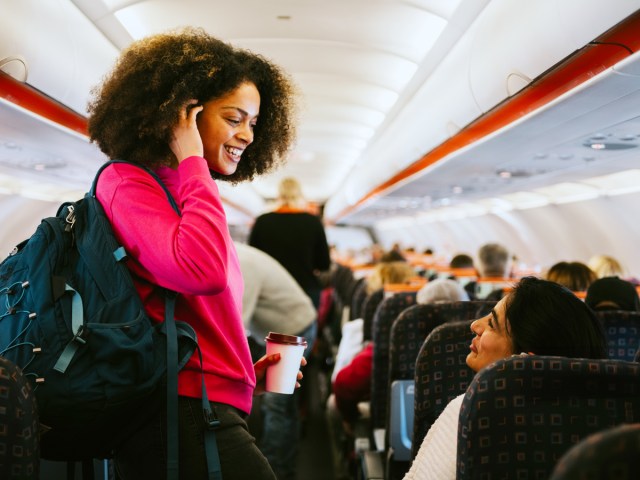
Just because you and your seatmate have worked out custody of the shared space doesn’t mean that it’s automatically yours for the whole flight. A situation may arise mid-flight where another seat (or the seatback screen) breaks, or there’s a medical emergency, and flight attendants need to accommodate another passenger in the empty middle seat next to you. The crew’s job is to get everyone to their destination safely and comfortably, and if they need that middle seat to do so, that’s their right.
Don’t Assume a Friend Can Join You
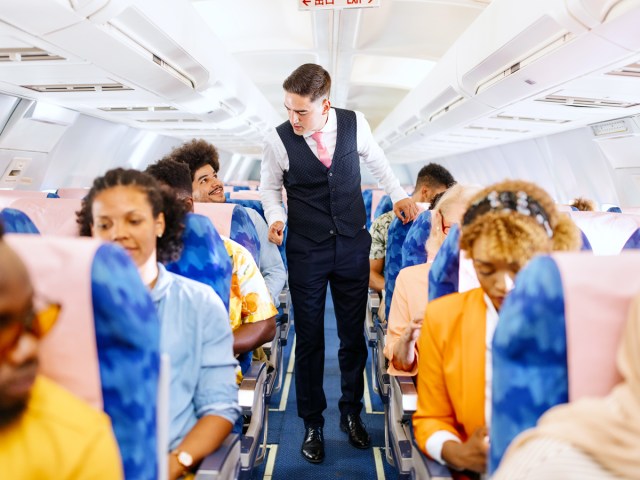
If you’re traveling with others on the same flight but you weren’t able to reserve seats together, it can be tempting to have them join you in the empty seat next to you. However, consider the other passenger in your row before doing so. They’re probably just as thrilled as you are that the seat has been left open. At the very least, be sure to ask them for permission before your companion takes the empty seat and try to do so as early in the flight as possible.
You’ll also want to ask the flight attendants for permission. Before departure, the crew performs a weight and balance check. An empty seat may have been left open intentionally to ensure proper weight distribution and a safe takeoff, so don’t just assume it’s there for the taking — ask first.
Other Unwritten Airplane Etiquette Rules
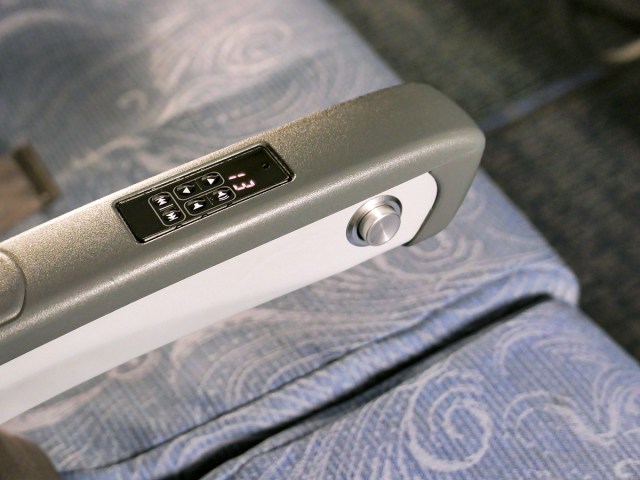
In the more likely scenario that the middle seat is occupied, one of the biggest topics of debate concerns the armrest. While traveler opinions were mixed in a recent survey, the general consensus is that the middle seat passenger gets first dibs on both armrests. After all, no one likes being stuck in the middle seat between two strangers, and the window seat passenger gets control of the window shade, while the aisle seat passenger has easy access to get up and use the lavatory.
And as far as trading seats with other passengers, try to avoid it unless it’s absolutely necessary. If it is necessary, always ask the other passenger first, and make sure that your offer is fair — offering to take an aisle seat in the back for an aisle in front, for example. If the other passenger politely declines, respect their decision.
Another hot topic: reclining your seat. While passengers are technically allowed to recline their seats at any time (except during takeoff and landing, per FAA regulations) because it is part of the seat function they pay for, you should always be courteous to others. U.S. flight attendant and author Heather Poole suggested to CNN that travelers should check with the passenger behind them first and acknowledge that there are times when it may be inappropriate to recline.
There can be a lot to grasp in terms of airplane etiquette, especially if you don’t fly frequently. When in doubt, always give courtesy and consideration to your fellow travelers — you never want to be that passenger.
More from our network
Daily Passport is part of Inbox Studio, an email-first media company. *Indicates a third-party property.
















